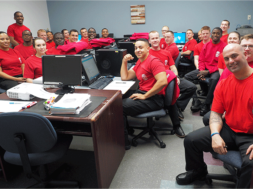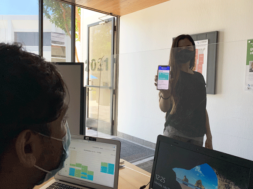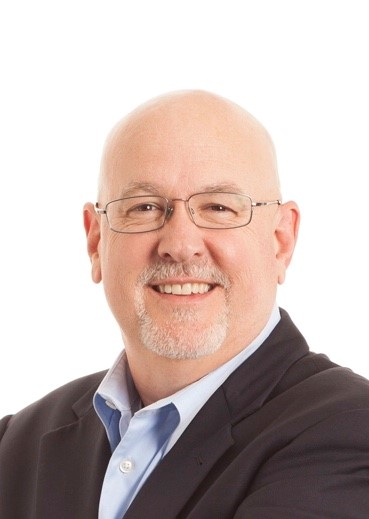
Campus Impossible
By Jeff Akens, Divisional Director of Operations, Success Education Colleges
I am a fan of the Travel Channel’s show “Hotel Impossible.” The host, Anthony Melchiorri, helps inexperienced hotel owners save their struggling properties from closure. Not only is the show entertaining, but it provides so many lessons about how to, and most importantly, how NOT to operate a service business. Years ago, when I first started in this sector of education, one of my mentors pointed out that managing a career college location was very similar to managing a hotel. Both have many different departments that must work together to achieve their goals, and both are focused on service to the customer. Both are unique in that the customer stays on-site for a length of time. Watching “Hotel Impossible” reminds me of these similarities with our sector.
If you’ve ever watched the show you know that the problems that Mr. Melchiorri points out in each episode seem obvious to the viewer. You watch wondering how the hotel owners cannot see the issues themselves. After many years of managing multiple career college locations, though, I’ve seen it far too many times before – campus directors who can’t see their own campus operational problems that to me are so obvious.
Not surprisingly given the similarities between our service businesses, the problems that Mr. Melchiorri points out in his show fall into the same five categories as do the problems at our campuses – culture, mission, empowerment, structure, and service.
As I watched episodes of “Hotel Impossible,” it finally occurred to me that these five areas in which Mr. Melchiorri focuses mirror the same areas in which I focused on as a campus director. I’m somewhat embarrassed to admit that I actually put together a list of “rules” that I asked the employees at each of my campuses to embrace. It was my way of orienting my teams to my leadership style and to my philosophies about how a career college campus should be managed. My rules fall right into Mr. Melchiorri’s five categories. Looking at them again many years later, I think they still hold very true today. So here they are…the areas in which I would focus if I were hosting a “Campus Impossible” television show.
Culture
Mr. Melchiorri focuses a lot on his show on building a culture of accountability, especially in the area of keeping the hotels clean. He demonstrates over and over that the most important element to running a successful hotel is having clean rooms. In many of the episodes, the owners blame their problems on their inability to recruit good employees. Mr. Melchiorri goes crazy when they make excuses and do not take accountability. Developing the right culture is critical in the hotel business, and it’s critical in our business as well. Here are my “rules” that relate to the type of culture we need to develop at our campuses:
- Rules #8 & 37 – Our leadership style should be open, communicative, and collaborative. We need to regularly show our faculty and staff that we appreciate them.
It is so important to develop a culture of openness. Years ago, I was named President of a school group where the employee satisfaction was measured at a Net Promoter Score of -14 percent. I was able to increase this score to +46 percent in only two years. Two changes were completely responsible for this improvement; 1) Improving communication by implementing formal communication channels, and 2) Implementing a formal college decision making process that involved all of the employees directly. Put simply I made sure we kept everyone completely informed about what the college was doing and made sure they had input into the college’s decisions.
- Rules #12, 24 & 27 – Every team member is an enrollment representative, retention coordinator, and placement advisor. No employee, department, or student is perfect; therefore, we all must help each other do our jobs.
Silos will kill your campus. A critical element to running a successful career college is to develop a culture of all departments working together toward a common goal. This is accomplished through lots of communication and providing everyone with exposure to multiple departments. Where this is the most important is in developing a culture where everyone believes that recruitment, retention, and placement are collectively their responsibility.
- Rules #11, 33, & 34 – We must hold ourselves accountable to our key performance outcomes, with our employment rate being our ultimate measure of success. While we won’t always achieve our goals, we will never give excuses as to why we missed them – only a plan to achieve them next time.
It is so critical that we develop a culture of accountability at our campuses – one where benchmark goals are established for every student outcome, and every employee embraces their use to measure their own and their campus’ success. One of my proud moments came during the first appearance at my campus staff meeting by the new CEO of the private equity group that had just purchased our school group. He was so impressed, and I was so proud, that every single one of my department managers and program directors focused entirely on measurable outcomes when they gave their quarterly updates.
- Rules #35 & 36 – The Department of Education requires that we make a profit, so we will not survive without more students.
This often surprises employees when I introduce them to it. Even if they buy into our mission, they still may view profit as a bad thing and are often surprised to learn about the required financial ratios. It is critically important that all of our faculty and staff understand that the college must make a profit. When explaining this to them, I inform them that non-profit colleges are also required to make a profit – they just call it “generating a surplus.” But, it’s the same thing. Critical to a college’s health – for-profit or non-profit – is that the college continues to bring in new students. All faculty and staff must embrace this and support the college’s recruitment efforts.
Mission
Mr. Melchiorri finds that a lot of hotels try to be all things to all people instead of focusing on a single core business. He reminds them that their primary source of revenue is their rooms. It is not their restaurant, not their gift shop, and definitely not add-on fees. He also helps the hotel owners understand how critical it is that they understand their customer. He has exploded on a few hotel owners who tried to tell him that their customers are different from those he is used to serving. One owner tried to tell him that their customers are okay with dirty rooms. Another that their customers didn’t mind walking through an alley to the restaurant. It is of critical importance that we understand our mission as career colleges, and it is critical that we fully communicate this mission to our faculty and staff. Here are a few of my rules relating to the college’s mission.
- Rules #18 & 19 – We are not a traditional university, a state college, nor a community college. We have a completely different mission than these institutions. Our mission is to educate and train those who need a different type of college, and in many cases to train those for whom our type of college is their only option.
Of course, each of our institutions is unique. But, if we define ourselves as a private, career-focused institution, we are different than the types of colleges listed above.
It is critical to your college’s success that all of your faculty and staff members understand your mission and understand the needs of the students that you serve.
Further, they must embrace your students and embrace serving them. If they are frustrated by the challenges of serving your students, they will not be able to provide them with the kind of support needed to help them become successful. Explore this in your interview process, especially with potential faculty members. If they cannot convince you in the interview that they are the type of individual who will embrace the mission of your college and embrace your students, do not hire them!
- Rule #25 & 26 – It is very difficult to predict student success during the enrollment process. Therefore, our entrance standards will determine who is admitted and who is not. We will not ask our Admissions staff to attempt to make these decisions. All of our faculty and staff will have input into the college’s entrance standards.
I sometimes get differences of opinion on these rules. Some people will point out that Admissions staff need to guide students towards the right program, and that they should not enroll students who show clear signs of not being able to benefit from the education. Some programmatic accrediting bodies require Program Directors to make individual final acceptance decisions. I understand all of this and don’t disagree. But, I feel strongly that as much as possible we should rely on our set standards to make entrance decisions.
Years ago when our college was struggling with retention in our Pharmacy Technician program, we created an elaborate acceptance process that included a number of elements – entrance exam scores, high school grades, high school attendance, previous college experience, letters of recommendation, and interviews with the Program Director, Dean of Education, and Campus Director. The result of all of this was an entrance score for each student that determined whether or not they were accepted into the program. After using this system for over a year, we evaluated its success. To our surprise, we discovered that, on average, students who were ultimately successful in the program received lower entrance scores than students who were not successful. And our retention rates were unchanged. We were completely failing at trying to predict student success!
While this does vary depending on the program, in general, it is very difficult to predict success. It is important that our faculty understand this, understand that we will have a system that will attempt to accept students with a reasonable chance of success, and embrace doing everything they can to help them be successful.
- Rule #32 – Your students are not different.
If I had a nickel for every time I have heard from someone at a campus that the students at their campus are different from those at other campuses… This kind of thinking is a plague on your ability to create a culture of accountability. You can’t allow this to persist. Yes, different communities have different demographics resulting in different campus populations. And, yes, this may drive slightly different outcomes. Urban, suburban, and rural campuses can generate somewhat different outcomes. Program mix can play a large role in overall student outcomes.
However, the needs of students are the same no matter where they live. I have had similar successful student outcomes using the exact same processes and approach no matter where the campuses were located. Boise, Oakland, Albuquerque, Portland, Las Vegas, Los Angeles…it doesn’t matter. Again, it is imperative that your employees understand the mission of your college and accept their responsibility in helping support the success of the student…no matter where their individual campus is located.
Empowerment
In many of the “Hotel Impossible episodes,” Mr. Melchiorri finds that hotel employees have not been empowered to make things better. Many times he sees that they have the solutions to the problems that the hotel is facing, but aren’t being given the opportunity to help. Similarly, we all too often ignore the ideas and support that our own employees can give us. They are usually closer to the operations and to the students than we are, and they often can see solutions that elude us. Many of my “rules” relate to the need to empower our faculty and staff members.
- Rules #2 & 4 – All faculty and staff members should be empowered to make their own decisions and taught to handle their own issues. Faculty should be able to handle student issues and make decisions regarding student progress. To do this, they need to be made aware of all policies, procedures, standards, and regulations.
One of the most common mistakes that I’ve seen campus directors make is trying to control all decision making themselves. Doing this creates a culture where faculty and staff members do not take responsibility and instead just wait for the campus director to make decisions.
No matter how large or small a campus, the more empowered its team members are, the better it will operate.
To do this requires a lot of training and direction on what decisions they can make on their own and what needs to come through the campus director. They will also need to become fully knowledgeable of college policies and procedures, accreditation guidelines, and government regulations. All Program Directors and instructors should have read their accreditation standards – both institutional and programmatic. And, they should understand how the college meets each of these standards.
- Rule #3 – Every team member controls the destiny and success of their area of responsibility.
With empowerment, comes responsibility. Developing a culture of accountability will allow us to trust that our faculty and staff will make the right decisions when they are empowered. To do this requires that our faculty and staff fully accept that they can make a direct impact on the outcomes of our students.
At one point in my career, I became a campus director of a campus where the program directors did not believe that they could make an impact on retention rates. They fully believed that student success was entirely up to the student and they could do nothing to change this. Knowing that I had to change their minds if I was going to improve the campus outcomes, I brought them together to demonstrate the folly of their thinking. I asked each of them to discuss what they knew of each of the instructors at our campus and to rate each of them according to their ability as instructors. I asked them to rank the instructors all on the whiteboard from the best, most experienced instructor down to the least experienced, and most struggling instructor.
After they had put together their list, I then uncovered my list. I had created my list based on my interaction with them in the short time I had been there and on classroom observations that I had conducted. As I suspected would be the case, our lists were very similar. We had the faculty ranked in nearly the same order. Finally, I uncovered the final part of the whiteboard, a list of instructors ranked from the instructor with the highest retention rate down to the instructor with the lowest retention rate. And, of course, just as I knew would be the case, the three lists were the same.
My program directors were aghast. They had proven to themselves that their instructors indeed made a direct impact on their students’ ability to graduate. From that point on, they bought into a culture of accountability, and I never again had to convince them that we control the success of our student outcomes.
Structure
It is clear in many of the episodes of “Hotel Impossible” that a big problem in many of the hotels is that people do not know what is expected of them, nor how they are performing. Mr. Melchiorri finds that many of these failing hotels have not defined their employee’s roles, they aren’t providing training, and they aren’t having staff meetings. Many do not have defined systems and processes – they do not have systems in place to manage their business.
- Rule #38 – Know your role.
I stole this one from a High School Admissions manager who worked for me for many years. He was a big believer in ensuring that each person on his team completely knew and understood their area of responsibility and how it fit into the whole. Each of his team members knew to whom they reported, exactly what was expected of them, and how they were performing compared to these expectations. As a result, this manager developed teams where each person drove his area to the highest potential, and they collectively drove outstanding outcomes. I’ve seen the opposite in campuses where people were completely confused about their role, and their outcomes were predictably poor.
- Rules #14 & 23 – We will confirm and maintain an appropriate code of professionalism among our students, faculty, and staff. We won’t be jerks about it, but we will enforce it. Faculty members should require that the students address them by their titles. Our students need us to be mentors and role models, not friends.
I sometimes get pushback on these rules from faculty members who want to maintain a relaxed, fun environment in the classroom. They believe that to do this, they need to build a friendly relationship with their students and have a relaxed set of rules. They are wrong. Maintaining a strong code of conduct helps prepare students for the work environment and communicates the line between student and teacher. This helps the faculty member with classroom management, and it sets her/him up to be in the role of a coach – on their side and supporting them but giving them the kick in the butt they sometimes need!
- Rule #1 – There are very few black and white rules.
We must get our students used to following rules. This will help prepare them for the working world and will help them become successful. But, conversely, we must ensure that our faculty and staff understand that we can’t really maintain rules in an absolute manner or our students will struggle. We are working with people, and people are imperfect. We have rules in place to help our students succeed, but we will need to be flexible with these rules as they make mistakes, get better, and become successful graduates.
Service
Mr. Melchiorri focuses, in nearly every episode in some way, on customer service and customer satisfaction. He shows many of the owners and managers what their customers are saying about them on social media. Many are completely unaware of their ratings on Trip Advisor or Yelp. He helps the owners uncover why their hotels are simply not meeting their customers’ needs. Sometimes, we fail to meet our students’ needs.
- Rule #15 – Take the opportunity every day to relate your course to the students’ goals. Give your students a reason to be in your class.
This rule is probably the single most important rule on my list. Student attendance is the greatest indicator of whether or not they will ultimately be successful in our programs.
Students attend class when they like their instructor and when they understand the relationship between what they are learning each day and the career they are pursuing.
Years ago, I had a new political science instructor come to me at the end of her first week to let me know that she could not continue. She explained that her students didn’t want to be in her class, that they had no interest in the subject matter, and that they were not paying attention. After further conversation, I realized the root of her problems. She had not given her students a reason to be in her class. I explained to her that her students were likely struggling to understand how her class would help them in their new career. Every instructor, and especially one teaching a general education course, needs to help their students understand how the course content relates to the career they are seeking.
I asked this instructor to give it one more week and instructed her to focus the first part of the next class session on relating the course to the students’ career goals. At the end of the next week, the instructor came to me excited about how engaged her students now were in the course! She said everything had changed since she had taken my advice. She told me that she showed her students how politics influence elements of their new careers and how it can impact their lives directly. Making this one change made all the difference in how her students reacted to her and to the course.
- Rule #16 – Students must know the expectations of the class and exactly how they are progressing every day.
Critical to students’ continued progression is that they understand what is expected of them and how they are doing relative to these expectations. As a campus director, I used to tell my instructors that I should be able to ask any student at random at any time what grade they are getting in class as of that day and that they should be able to give me an answer. This really is no different than what is critical to having successful high performing employees. We all need to know the same thing – What is expected of me? And, how am I doing? Ensure that your instructors make the answers to these questions very clear to your students, and your students will succeed.
- Rule #22 – We are teaching the adult student. Always treat them with respect. Be strict but let them know it’s because we care about their success.
Tough love. Your faculty and staff must demonstrate both. Our students must know that we care about them and their success. But, at the same time, we must challenge them. We must uphold the academic integrity of our programs, and we must help our students rise to these levels. When they fail to meet our expectations, we must discuss this with them with respect, allow them to talk about why they failed, and focus our discussion on plans to help them succeed.
Finally
Just as Mr. Melchiorri helps hotels improve their culture, mission, empowerment, structure, and service, we must do the same with our campuses. We have to ensure that we have a culture of accountability that is student-centered, focusing on strong student outcomes. We must have a well-defined college mission and ensure that our faculty and staff clearly understand and embrace this mission. We must empower our faculty and staff members, allowing them to make individual decisions and participate in making organizational decisions. We must have a well-structured organization where our employees know their role, know what is expected of them, and understand how this fits into the goals of the college as a whole. We must provide outstanding service to our students, truly caring about their success and making sure they know this.
As leaders, we must be completely committed to helping each of our students succeed. We must be completely committed to driving outcomes at the highest level. We need to get all of our faculty and staff members bought into meeting the mission. Anytime I met with my teams and introduced them to my “rules,” I emphasized the commitment I wanted from them with the final “rule:”
- Rule #40 – We will have the best career college in the country. We will have the best combination of top recruitment rates, retention rates, employment rates, default rates, certification exam scores, student satisfaction, employee engagement, and fiscal results. Period.
JEFF AKENS has been Divisional Director of Operations for Success Education Colleges since January 2017 where he supports the oversight of five campus locations.
Prior to joining SEC, Akens spent 23 years with Carrington College, part of what was then known as DeVry Education Group. He served as President of Carrington College where he was responsible for 20 multi-state locations, 20 on-site and online programs, 1000 employees, and 8000 students. Akens held a variety of leadership positions with Carrington including Director of Career Services, campus Executive Director, Regional Director of Operations, and President of Carrington College California.
Akens has been responsible for starting many new programs and campus locations, campus relocations, and many successful campus turnarounds. He has been fundamental to the strengthening of academic programming; student satisfaction, retention, and placement; and employee engagement and development.
Akens is a former board member of the California Association of Private Postsecondary Schools, former member of the California Community College CEO Board’s Accreditation Workgroup II, and past president of the International Association of Business Communicator’s Sacramento chapter.
Akens holds a Master of Business Administration from DeVry University’s Keller Graduate School of Management and a Bachelor of Science in Business Administration from California State University, Sacramento. He currently splits his time between his two California homes in Sacramento and Chino Hills.
Contact Information: Jeff Akens // Divisional Director of Operations // Success Education Colleges // 916-367-3745 // jeffa@success.edu // www.success.edu // https://www.facebook.com/northwestcollege/ // https://www.facebook.com/nevadacareer/ // https://www.facebook.com/glendalecareer/











